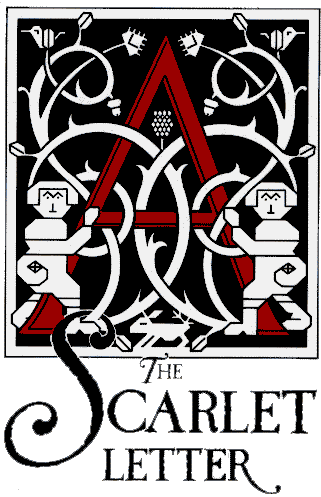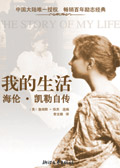奥兰多orlando (英文版)作者:弗吉尼亚·伍尔芙-第19部分
按键盘上方向键 ← 或 → 可快速上下翻页,按键盘上的 Enter 键可回到本书目录页,按键盘上方向键 ↑ 可回到本页顶部!
————未阅读完?加入书签已便下次继续阅读!
ver done before。 The malady is too well known; and has been; alas; too often described to need describing afresh; save very briefly。 There were mountains; there were valleys; there were streams。 She climbed the mountains; roamed the valleys; sat on the banks of the streams。 She likened the hills to ramparts; to the breasts of doves; and the flanks of kine。 She pared the flowers to enamel and the turf to Turkey rugs worn thin。 Trees were withered hags; and sheep were grey boulders。 Everything; in fact; was something else。 She found the tarn on the mountain–top and almost threw herself in to seek the wisdom she thought lay hid there; and when; from the mountain–top; she beheld far off; across the Sea of Marmara; the plains of Greece; and made out (her eyes were admirable) the Acropolis with a white streak or two; which must; she thought; be the Parthenon; her soul expanded with her eyeballs; and she prayed that she might share the majesty of the hills; know the serenity of the plains; etc。 etc。; as all such believers do。 Then; looking down; the red hyacinth; the purple iris wrought her to cry out in ecstasy at the goodness; the beauty of nature; raising her eyes again; she beheld the eagle soaring; and imagined its raptures and made them her own。 Returning home; she saluted each star; each peak; and each watch–fire as if they signalled to her alone; and at last; when she flung herself upon her mat in the gipsies’ tent; she could not help bursting out again; How good to eat! How good to eat! (For it is a curious fact that though human beings have such imperfect means of munication; that they can only say ‘good to eat’ when they mean ‘beautiful’ and the other way about; they will yet endure ridicule and misunderstanding rather than keep any experience to themselves。) All the young gipsies laughed。 But Rustum el Sadi; the old man who had brought Orlando out of Constantinople on his donkey; sat silent。 He had a nose like a scimitar; his cheeks were furrowed as if from the age–long descent of iron hail; he was brown and keen–eyed; and as he sat tugging at his hookah he observed Orlando narrowly。 He had the deepest suspicion that her God was Nature。 One day he found her in tears。 Interpreting this to mean that her God had punished her; he told her that he was not surprised。 He showed her the fingers of his left hand; withered by the frost; he showed her his right foot; crushed where a rock had fallen。 This; he said; was what her God did to men。 When she said; ‘But so beautiful’; using the English word; he shook his head; and when she repeated it he was angry。 He saw that she did not believe what he believed; and that was enough; wise and ancient as he was; to enrage him。
This difference of opinion disturbed Orlando; who had been perfectly happy until now。 She began to think; was Nature beautiful or cruel; and then she asked herself what this beauty was; whether it was in things themselves; or only in herself; so she went on to the nature of reality; which led her to truth; which in its turn led to Love; Friendship; Poetry (as in the days on the high mound at home); which meditations; since she could impart no word of them; made her long; as she had never longed before; for pen and ink。
‘Oh! if only I could write!’ she cried (for she had the odd conceit of those who write that words written are shared)。 She had no ink; and but little paper。 But she made ink from berries and wine; and finding a few margins and blank spaces in the manuscript of ‘The Oak Tree’; managed by writing a kind of shorthand; to describe the scenery in a long; blank version poem; and to carry on a dialogue with herself about this Beauty and Truth concisely enough。 This kept her extremely happy for hours on end。 But the gipsies became suspicious。 First; they noticed that she was less adept than before at milking and cheese–making; next; she often hesitated before replying; and once a gipsy boy who had been asleep; woke in a terror feeling her eyes upon him。 Sometimes this constraint would be felt by the whole tribe; numbering some dozens of grown men and women。 It sprang from the sense they had (and their senses are very sharp and much in advance of their vocabulary) that whatever they were doing crumbled like ashes in their hands。 An old woman making a basket; a boy skinning a sheep; would be singing or crooning contentedly at their work; when Orlando would e into the camp; fling herself down by the fire and gaze into the flames。 She need not even look at them; and yet they felt; here is someone who doubts; (we make a rough–and–ready translation from the gipsy language) here is someone who does not do the thing for the sake of doing; nor looks for looking’s sake; here is someone who believes neither in sheep–skin nor basket; but sees (here they looked apprehensively about the tent) something else。 Then a vague but most unpleasant feeling would begin to work in the boy and in the old woman。 They broke their withys; they cut their fingers。 A great rage filled them。 They wished Orlando would leave the tent and never e near them again。 Yet she was of a cheerful and willing disposition; they owned; and one of her pearls was enough to buy the finest herd of goats in Broussa。
Slowly; she began to feel that there was some difference between her and the gipsies which made her hesitate sometimes to marry and settle down among them for ever。 At first she tried to account for it by saying that she came of an ancient and civilized race; whereas these gipsies were an ignorant people; not much better than savages。 One night when they were questioning her about England she could not help with some pride describing the house where she was born; how it had 365 bedrooms and had been in the possession of her family for four or five hundred years。 Her ancestors were earls; or even dukes; she added。 At this she noticed again that the gipsies were uneasy; but not angry as before when she had praised the beauty of nature。 Now they were courteous; but concerned as people of fine breeding are when a stranger has been made to reveal his low birth or poverty。 Rustum followed her out of the tent alone and said that she need not mind if her father were a Duke; and possessed all the bedrooms and furniture that she described。 They would none of them think the worse of her for that。 Then she was seized with a shame that she had never felt before。 It was clear that Rustum and the other gipsies thought a descent of four or five hundred years only the meanest possible。 Their own families went back at least two or three thousand years。 To the gipsy whose ancestors had built the Pyramids centuries before Christ was born; the genealogy of Howards and Plantages was no better and no worse than that of the Smiths and the Joneses: both were negligible。 Moreover; where the shepherd boy had a lineage of such antiquity; there was nothing specially memorable or desirable in ancient birth; vagabonds and beggars all shared it。 And then; though he was too courteous to speak openly; it was clear that the gipsy thought that there was no more vulgar ambition than to possess bedrooms by the hundred (they were on top of a hill as they spoke; it was night; the mountains rose around them) when the whole earth is ours。 Looked at from the gipsy point of view; a Duke; Orlando understood; was nothing but a profiteer or robber who snatched land and money from people who rated these things of little worth; and could think of nothing better to do than to build three hundred and sixty–five bedrooms when one was enough; and none was even better than one。 She could not deny that her ancestors had accumulated field after field; house after house; honour after honour; yet had none of them been saints or heroes; or great benefactors of the human race。 Nor could she counter the argument (Rustum was too much of a gentleman to press it; but she understood) that any man who did now what her ancestors had done three or four hundred years ago would be denounced—and by her own family most loudly—for a vulgar upstart; an adventurer; a nouveau riche。
She sought to answer such arguments by the familiar if oblique method of finding the gipsy life itself rude and barbarous; and so; in a short time; much bad blood was bred between them。 Indeed; such differences of opinion are enough to cause bloodshed and revolution。 Towns have been sacked for less; and a million martyrs have suffered at the stake rather than yield an inch upon any of the points here debated。 No passion is stronger in the breast of man than the desire to make others believe as he believes。 Nothing so cuts at the root of his happiness and fills him with rage as the sense that another rates low what he prizes high。 Whigs and Tories; Liberal party and Labour party—for what do they battle except their own prestige? It is not love of truth but desire to prevail that sets quarter against quarter and makes parish desire the downfall of parish。 Each seeks peace of mind and subserviency rather than the triumph of truth and the exaltation of virtue—but these moralities belong; and should be left to the historian; since they are as dull as ditch water。
‘Four hundred and seventy–six bedrooms mean nothing to them;’ sighed Orlando。
‘She prefers a sunset to a flock of goats;’ said the gipsies。
What was to be done; Orlando could not think。 To leave the gipsies and bee once more an Ambassador seemed to her intolerable。 But it was equally impossible to remain for ever where there was neither ink nor writing paper; neither reverence for the Talbots nor respect for a multiplicity of bedrooms。 So she was thinking; one fine morning on the slopes of Mount Athos; when minding her goats。 And then Nature; in whom she trusted; either played her a trick or worked a miracle—again; opinions differ too much for it to be possible to say which。 Orlando was gazing rather disconsolately at the steep hill–side in front of her。 It was now midsummer; and if we must pare the landscape to anything; it would have been to a dry bone; to a sheep’s skeleton; to a gigantic skull picked white by a thousand vultures。 The heat was intense; and the little fig tree under which Orlando lay only served to print patterns of fig–leaves upon her light burnous。
Suddenly a shadow; though ther
![[网王同人]colorless wind封面](http://www.baxi2.com/cover/noimg.jpg)
![[bbcsherlock]致我心中的你封面](http://www.baxi2.com/cover/22/22011.jpg)


